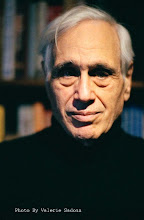Now we learn why Christopher Dodd, the retired Senator from Connecticut, is receiving over $1.5 million a year to head the Motion Picture Association of America.
The MPAA, the trade organization for the Hollywood studios, is financed by Warner Bros., Fox, Universal, Disney, Sony, and Paramount. Each provides about $10 million per year. Aside from efforts to suppress digital piracy, it lobbies Congress and regulatory agencies. Its crucial job here is to protect the Big Six’s crown jewels: their intellectual properties. Without their libraries of movies, animated shorts, and TV series, they couldn’t survive.
Consider Warner Bros. Its library has more than 60,000 licensable properties, including 6,500 movies and 40,000 TV episodes. Whereas its DVD sales have been on the wane, its TV licensing has skyrocketed. In 2010, according to sources at Time Warner, Warner Bros. harvested over $4 billion from worldwide licensing to TV. Nearly 80 percent came from just four cable customers—HBO, Turner, ABC Family, and NBC-Universal’s cable channels. Not only did this far exceed its share of theatrical box-office receipts, which were $2.4 billion in 2010, but this licensing is highly profitable: The studio pays none of the cost of advertising, prints, or logistics. Almost all proceeds, minus some residuals paid to third parties, go to a studio’s bottom line. Whatever the vagaries of the box office, licensing is the largest and most reliable source of profits for the studios.
But these golden geese are in danger of being strangled to death by video streaming. New age companies, notably Netflix, Amazon, Apple, and Google, now compete with cable TV by streaming movies and other video directly over the Internet. Netflix, for instance, offers unlimited streaming for $1 extra a month with its mail-in service, Amazon offers free streaming to its 10 million Amazon Prime customers, and Google offers YouTube free.
How can they afford it? Whereas the old-line cable and satellite companies have enormous building, servicing and amortizing costs, the Internet is essentially free to transmit over. Even if the new age streamers paid the same to license, buy, or produce content, they have a comparative advantage. “I don’t see how cable can compete with free transmissions,” a savvy top executive of Time Warner told me, pointing out that Netflix, after sublicensing Starz’s content, offers it for a fraction of what Starz charges its subscribers. No doubt Starz will end this bargain rate when its Netflix contract ends in October 2011, but so long as transmission remains free, streaming will chip away at the cable audience. “Cord cutting” will leave the cable systems with diminished revenue but the same overhead. “If 5 percent cut their cord, it would be a financial disaster for cable networks,” said a pay-TV executive. The result: cable nets would cut back on the amount they pay for content (which has happened in the case of pay-TV channels).
The Hollywood studios not only risk losing billions of dollars in licensing revenues, but their corporate parents own almost all the big cable networks. Since anti-trust law prevents the studios from meeting to restrain trade, they must act through the MPAA.
Enter Dodd. While technically prohibited from lobbying Congress until 2013, he can provide guidance to the MPAA’s massive D.C. lobbying operation. And as a former chairman of the Democratic Party and former head of the Senate Banking Committee, he knows how the who-gets-what system in Congress works.
Among other things, the MPAA has sidled into the battle raging at the FCC over regulation of the Internet regarding so-called net neutrality, which would guarantee anyone could send anything at no cost over the Internet. Proponents argue that free, untampered with transmission is vital to democracy (and their businesses). They have the support of FCC Chairman Julius Genachowski, a former IAC executive.On the other side are the telecom and cable companies that argue it’s their right to manage traffic that goes through their pipelines as efficiently as possible. Just as cities should be able to manage vehicle traffic by discriminating against trucks on certain streets, they say they should be allowed to segregate traffic along their routes, even if it results in slower, and possibly more expensive, video streaming. Here the interests of the telecoms, the cable networks, and studios converge.
The PR-acceptable issue that Dodd can use his considerable skills and connections to both solidify such an unwieldy alliance and lobby Congress is internet piracy. So we now have the MPAA supported Stop Online Piracy Act (SOP). The formidable roadblock to it is the powerful influence that the Internet titans have over the Obama administration. Hence the current war over SOPA.
skip to main |
skip to sidebar

About Me
- Edward Jay Epstein
- I studied government at Cornell and Harvard, and received a Ph.D from Harvard in 1973. My master's thesis on the search for political truth ("Inquest: The Warren Commission and the Establishment of Truth" and my doctoral dissertation ("News From Nowhere") were both published as books. I taught political science at MIT and UCLA for three years but then decided that researching and writing books was a far more educational enterprise. I have now written 14 books, some of which are on my (websitewww.edwardjayepstein.com) My new book is "The Hollywood Economist:The Reality Behind The Movie Business." I am currently writing a book on the 9-11 Commission. The photograph on my blog is by Paris photographer and artist Valerie Sadoun


